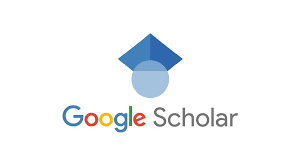Penerapan Sistem Bagi Hasil Budidaya Madu Ditinjau Dari Etika Bisnis Islam Di Desa Rantau Karya Kecamatan Geragai Kabupaten Tanjabtim
DOI:
https://doi.org/10.61722/jiem.v2i1.834Keywords:
Profit Sharing, Honey Cultivation, Islamic Business EthicsAbstract
The community of Rantau Karya Village is a community of which some are breeders, especially in the Honey Cultivation sector which is owned by the community of Rantau Karya Village, Geragai District, Tanjabtim Regency. With this honey cultivation, the community can fulfill their daily needs. The purpose of this research is to find out how the profit sharing system is implemented in the cooperation between owners and managers of honey cultivation in Rantau Karya Village, Geragai District, Tanjabtim Regency and to find out how Islamic business ethics reviews the implementation of the profit sharing system for honey bee cultivation in Rantau Karya Village. In this research, the method used is a qualitative method by checking the validity of the data using triangulation techniques and data collection methods using observation, interviews and documentation. The informants in this research are the owners and managers of honey cultivation. The application of the profit sharing system in the Mudharabah contract in honey cultivation in Rantau Karya Village is as Mudharib who carries out an activity or business and the owner is as shahibul maal who entrusts the cultivation to the manager to manage. Every time the harvest season arrives every 2 weeks, the owner shares the honey basil with the manager. 70% owner and 30% manager, that is the initial agreement between the owner and manager that has been agreed upon by both parties. So the author analyzes that, basically if all profit sharing activities are carried out correctly and in accordance with what Islam teaches then the profit sharing can be said to be valid, but if the profit sharing activities are not carried out correctly and are contrary to what Islam teaches, then for these results can be said to be invalid. If it is related to honey cultivation in Rantau Karya Village, Geragai District, Tanjabtim Regency, in its implementation it can be said to be in accordance with the principles of Islamic business ethics in accordance with the characteristics of the Prophet, namely (Siddiq, Tabligh, Amanah, Fathanah).
References
Buku:
Abdur Rohman, Ekonomi Al-Ghazali, Menelusuri Konsep Ekonomi Islam dalam Ihya’ Ulum al-Din. Surabaya: Bina Ilmu, 2010.
Darmawati, “Etika Bisnis Islam” Bening Media Publishing, 2020
Mardani, “Fiqh Ekonomi Syariah” Jakarta : Kencana, 2013
Dewan Pengurus Nasional FOR DEBI & dan ADESY, Ekonomi dan Bisnis Islam: Seri Konsep dan Aplikasi Ekonomi dan Bisnis Islam Jakarta: Rajawali Pers, 2016
Zaenal Arifin, Akad mudharabah penyaluran dana dengan prinsip bagi hasil, CV Adanu Abimata: Indramayu, 2021
Harahap Sofyan S. “Etika Bisnis dalam Perspektif Islam”. Jakarta: Salemba Empat 2011
Sugiyono, Metode Penelitian Kuantitatif, Kualitatif dan R&D, Yogyakarta: Graha Ilmu, 2017
Susmaningsih. “Etika Bisnis Islam. Pekalongan”, PT. Nasya Expanding Management, 2020
Jurnal :
Ari Kartiko, “Konsep Bagi Hasil Dalam Perspektif Islam”, jurnal Institut Pesantren Kh. Abdul Chalim Mojokerto, 2, No. 1 (Juli, 2019): 7. Accessed Juli 29, 2019.
Bagas Brian Pratama, “Akuntabilitas Organisasi Nirlaba: Analisis Dalam Metafora Empat Sifat Rasul”, Jurnal Ilmiah Akuntansi Politeknik Negeri Malang, 20, No. 1 (Maret, 2022): 48. Accessed Maret File:///C:/Users/User/Downloads/12399-39483-1-PB.Pdf
Erly Juliyani, “Etika Bisnis Dalam Persepektif Islam”, Jurnal Institut Pesantren Sunan Drajat Lamongan Ummul Qura ,8, No.1 (Maret, 2017): 63-65
Fariz Al-Hasni, “Akad Mudharabah Mutlaqah Dalam Praktik Perbankan Syariah Muamalat”, Jurnal Hukum Ekonomi Syariah Universitas Islam Negeri Mataram, 9, No. 2, (Desember, 2017) : 209. Accessed Desember 4, 2017
https://journal.uinmataram.ac.id/index.php/muamalat/article/view/2019
Ghafur, Abdul, “Etika Bisnis Dalam Perspektif Islam”, Iqtishodiyah: Jurnal Ekonomi Dan Bisnis Islam, 4, No. 1,(Januari, 2018): 2-3. Accessed Januari 8,2018
https://ejournal.inzah.ac.id/index.php/iqtishodiyah/article/view/74/47
Jannahar Saddam Ash Shidiqie, “Bagi Hasil Pertanian Ditinjau dari Undang-Undang dan Hukum Islam” Jurnal Ekonomi syariah indonesia universitas islam indonesia (UII) Yogyakarta, 9, No. 1, (Juni, 2017): 23. Accessed Juli 1, 2017
https://ejournal.almaata.ac.id/index.php/JESI/article/view/446
Downloads
Published
Issue
Section
License
Copyright (c) 2023 JURNAL ILMIAH EKONOMI DAN MANAJEMEN

This work is licensed under a Creative Commons Attribution-ShareAlike 4.0 International License.












